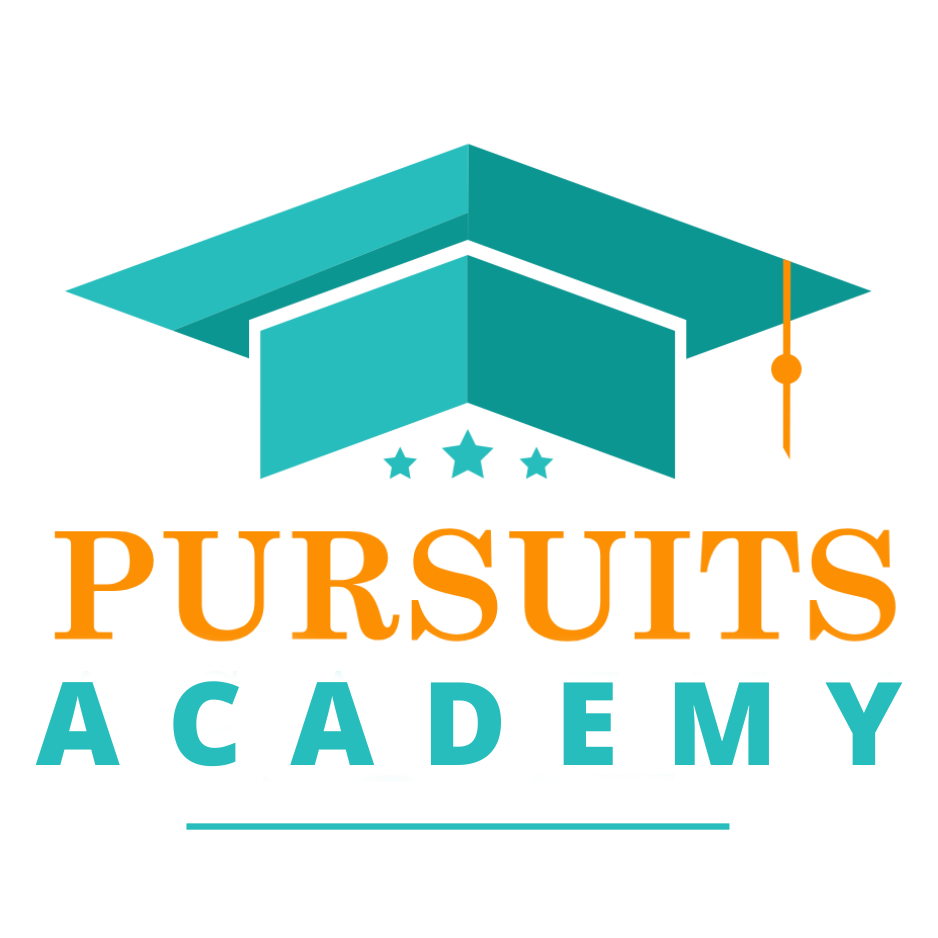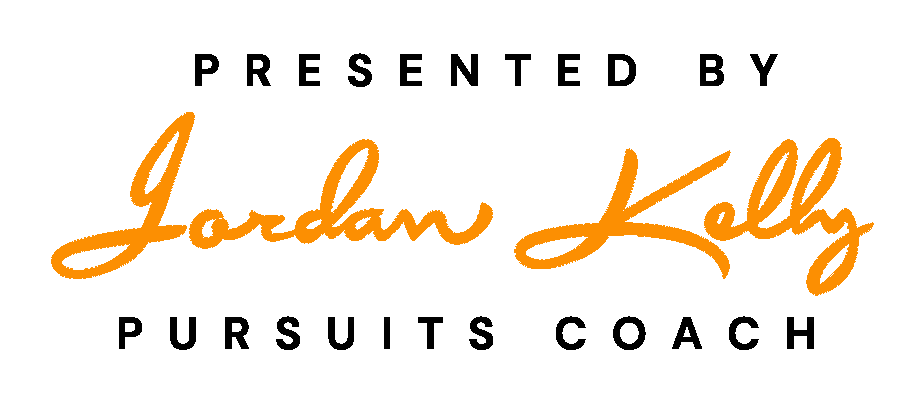ACADEMY KNOWLEDGE BASE
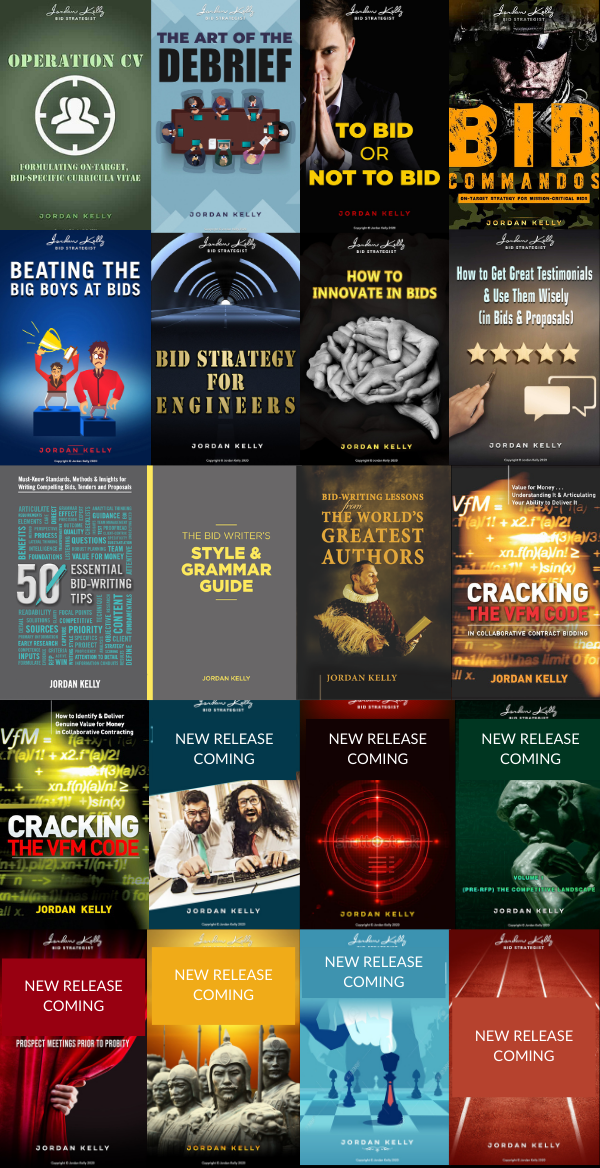

There are two – very distinctly different – ways to approach the whole process of bids, tenders and proposals . . . whether from the educational aspect, or in terms of the planning and conduct of live pursuits.
One is to treat this learning, and this work, in the dry manner that seems natural to many educators and consultants in this space – agencies that would have their clients believe it’s all so hard and so stressful that it needs to be handed over to external “experts”.
The other is to see the far more exciting and challenging perspectives to be found in this very broad field of operation, and to seize the opportunity to soak up in-the-field learning that will – immediately and ongoingly – pay dividends in numerous different arenas.
It is this latter philosophy that guides my creation of Pursuits Academy’s content. And it especially guides the production of my training programs — programs that are designed either (a) to be customised by me for each client organisation and delivered in real-time (and often, in-the-field) environments, OR (b) as self-delivered digital education (also as "in real-time" experiences).
Certain of my programs are unabashedly flavoured by my Army Reserve officer training experience . . . in line with my view of the overall objective of a commercial pursuit being, quite frankly, to “decimate the enemy”: an objective that requires not only premium strategy smarts, but also military-style discipline and tenacity. Winning high-value, mission-critical bids and pursuits is all about the accuracy of the bidder’s read on the client, its environment, its sensitivities, its priorities . . . and precisely what represents “value” to that client (and every stakeholder group within and associated with it) and why. Unashamedly, my firmly disciplined intelligence-gathering approach to that objective leaves no room for slack or error.
Being guided by this critical intel is the best way to (a) assess whether the battle you’re considering entering is one you are likely to win, (b) formulate your strategy for winning it, and (c) formulate a (post-bid) profitable and sustainable service and delivery plan or program.
It’s also the only way to make credible claims in your bid submission or proposal, and the only way to enter into a truly informed, honest, ethical and high-integrity business relationship with the client or customer organisation beyond that point.
'In my view, the overall objective of a commercial pursuit is – unabashedly – to “decimate the enemy”: an objective that requires not only premium strategy smarts, but also military-style discipline and tenacity.'
Jordan Kelly

Bidding is Only One Stage in the Business Development Continuum
I see the bid phase, or the initial pursuit, as simply the first stage in the overall continuum of an organisation’s business development . . . an approach that underpins my entire modus operandi.
Certainly it’s essential, in the bid or pursuit phase, to optimise your understanding of a client or customer organisation’s broader vision, mission and challenges in order to present a solution or a team that is closely aligned to its culture, its needs, its hot buttons, and its own specific definition of value for money — but so too it is vital to continue building on those working insights during the delivery phase.
'Winning high-value, mission-critical bids and pursuits is all about the accuracy of the bidder’s read on the client, its environment, its sensitivities, its priorities . . . and precisely what represents “value” to that client.'
Jordan Kelly

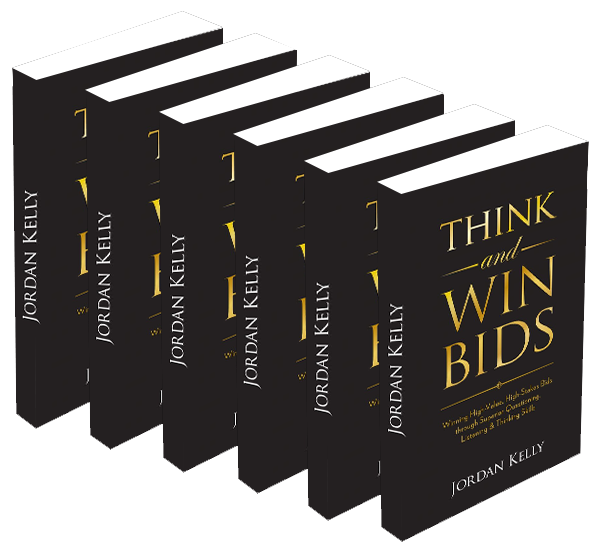
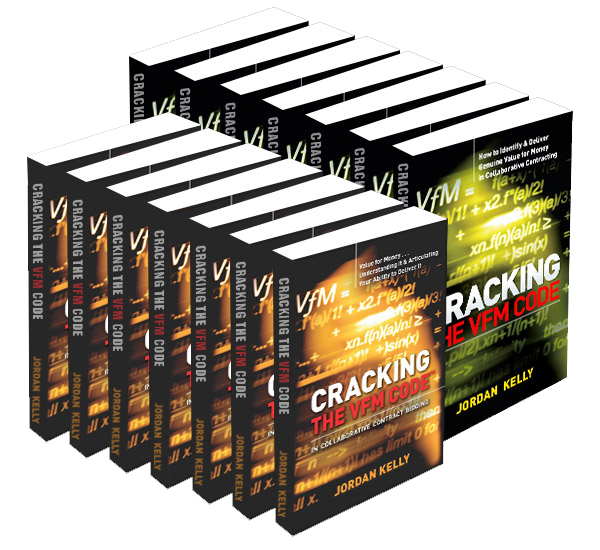


Further Principles Upon Which Jordan’s Strategy Formulation, Coaching Programs & Real-Time Mentoring Are Based
There’s No Substitute for Thinking.
I have long-observed how many consultants try to shortcut the bid strategy process, encouraging reliance on pre-formulated tools and templates, and other crutches that result in “inch-deep thinking”.
It’s sweet and easy . . . but before long, that superficial level of thinking and reliance on prompts becomes an entrenched modus operandi for bid teams. Filling out forms, tables, grids and prompt sheets becomes your bid talent’s idea of peak performance.
However, achieving a consistently high win rate over a sustained period of time, is the product of planning and thinking, not of tools and templates . . . which is the topic of my multi-industry signature book, 'Think & Win Bids: Winning High-Value, High-Stakes Bids through Superior Questioning, Thinking & Listening Skills'. It’s borne out both by all the case studies in that book, and also by the views of the many industry leaders who contributed their thoughts and wisdom to my ‘Cracking the VfM Code’ series (‘VfM’ = Value for Money), written for the infrastructure sector.
Value for Money is NOT A ‘Price-Only’ Equation.
My ‘Cracking the VfM Code' duo, and my own strategy formulation techniques and associated victories, are a clear and present demonstration that, contrary to the dogged belief of many (particularly “commoditised”) industries, price is often not the deciding factor at all. Rather, the victory bell is rung by the degree of tenacity in the information-gathering and intel-conversion process. It's this that will underpin just how closely the final submission comes to the target.
Well-planned, in-depth, early research with an open and inquisitive mind represents the starting point.
Asking Quality Questions Is Key.
Next is the ability to ask quality, insightful questions. Then comes the capacity to truly
listen to the answers.
And next comes the ability to think. But . . .
There’s More Than One Way to Think.
At the
macro level, formulating your bid strategy – or battle plan – involves taking high-value intel and combining it, in an orderly and concentrated process, with high-performance brain power.
At the micro level, it involves employing many different types of thinking (often simultaneously): logical thinking, deep thinking, nimble thinking, reflective thinking, proactive thinking, intuitiveness . . . and, always, always, client-centric and win/win thinking.
The distinct competitive advantage that provides is, in turn, consolidated by ensuring the entire organisation operates in a manner that supports its lifeblood bidding and tendering teams, along with its business development frontline.
Good bidding practices and the victory they bring about, are – in my book (literally) – underpinned by principles that apply, universally, across the entire sales process: from researching a prospective client organisation, throughout contract or project delivery, and on to after-sales service and the ongoing nurturing of the business relationship.
Your People Can't Operate Successfully in A Vacuum.
Certainly, the members of a bid or pursuit team must, collectively, possess a self-contained and complex web of talents and capabilities specific to the task. But my operating philosophy holds firmly that you can’t afford for them to operate in a vacuum, with processes disconnected from the activities and input of other key players in your organisation.
And yet the sad fact is that few, if any, tender and proposal trainers or coaches actively recognise the importance of these vital connection points, and even fewer know how to coach an organisation to optimise them. Indeed, most training programs treat the production of bids, tenders and proposals as an exercise that is all but discrete from the broader business development and sales discipline.
My trademark modus operandi includes ensuring that management, business development, and bid teams develop an acute recognition of the fact that bids, tenders and other forms of submission are simply the fired ammunition . . . and that it’s the entire company’s inputs that lead to that critical end-point of the battle.
That, my long service to this highly specialist field demonstrates, is the way you not only win more
convincingly and with greater ease, it’s also the way you retain the ground you’ve won for the long haul, position your organisation for profitable repeat business, and gain a reputation as a fearsome opponent to go up against in competition.
Who I've Worked With
By way of demonstration of both the breadth and depth of my experience with, and insights into, a vast array of industries, here are just some of the many companies that I have trained, coached, or consulted to:
- Oracle
- Siemens
- Bombardier Transportation
- Veolia Water, North America
- Leighton Construction
- Eagle Global Logistics
- Laing O’Rourke
- Ecotech (environmental monitoring)
- Fujitsu
- Mercer Superannuation
- QBE Insurance
- Fletcher Construction
- TelstraClear
- Telegrid / Transgrid
- Abigroup Contractors
- Constellation Capital Management
- Winslow Group
- Ostwald Bros
- Allaw (vendor warranty service)
- Hosttel (VOIP telephony)
- New Zealand Transport Agency
- Christchurch City Council
- WorkCare Medical
- Walton Construction
- City Care (Christchurch)
- LSE Technology
- Alliance Network International
- Shop’n’Chek Australasia
- Balgownie World Travel
- GNS Science
- York Civil
- APX Travel Management
- Walton Construction
- Flagstaff Consulting Group
- Austral Bricks
